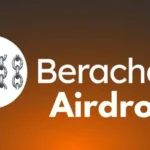Roman Protocol and Kichi Chain joined forces to speed up the adoption of Latin America’s blockchain-based monetary options.
The partnership focuses on actual asset tokenization and cross-chain cost financing, and crypto.information can report completely on crypto.information, with the purpose of making new liquidity alternatives for companies, builders and monetary establishments.
This instance may be seen in Mexico. There, individuals are exploring the tokenization of actual property to allow fractional possession, Anirkumar, CEO of the Roman Protocol, advised crypto.information. In the meantime, Argentina makes use of tokenized produce as collateral for farm funding.
RWA tokenization is the method of changing bodily or conventional monetary belongings, similar to actual property or items, into digital tokens that may be traded on a blockchain community. This enables buyers to purchase and promote the fractions of their belongings extra effectively, growing accessibility and liquidity.
Solana (SOL) is a well-liked ecosystem for this, but it surely’s solely gaining popularity, mentioned Alex Cavalero, co-founder of Kichi Chain.
“At present, Solana is likely one of the hottest and extremely liquid ecosystems with unbelievable traction within the chain. Nonetheless, customers in Latam and different rising markets are usually not related to the Solana Ecosystem,” Cavallero advised Crypto.Information. “Roman interoperability permits us to determine a brand new pathway for liquidity between Solana and rising market customers by Kichichan.”
This partnership makes RWA belongings extra accessible throughout a number of blockchain ecosystems by taking part within the interoperability layer of the ROME protocol and Kiichain’s blockchain infrastructure.
The Rome Protocol, which improves blockchain interoperability with Solana, gives a framework for RWA issuance, verification, and buying and selling. Kiichain is a layer 1 blockchain designed for rising markets. This contributes to the PayFi module that promotes blockchain-based funds, lending and monetary companies.
You may prefer it too: Bitcoin volatility will increase after Trump’s Bitcoin reserve and choices expire
Advantages of partnerships
This partnership streamlines compliance, will increase cross-chain liquidity, and helps each institutional and retail adoption.
Kiichain’s RWA is mirrored as an ERC token for wider Defi entry, however on-chain verification ensures regulatory compliance. Cavallero mentioned monetary merchandise, stablecoin-driven yield vaults and actual property will probably be prioritized.
“These are the costliest merchandise that aren’t accessible with out the advantages of tokenization,” Caballero mentioned.
The partnership establishes liquidity and reduces buying and selling friction by enabling cross-chain belongings motion between Ethereum (ETH), Solana and Kichi Chain. It additionally promotes possession of fractions, permitting buyers to purchase and promote much less parts of their high-value belongings.
“Tokenization can democratize entry to actual property funding,” Kumar mentioned.
Latam’s Rising Crypto Market
Latin America accounted for 9.1% of worldwide crypto inflow in 2024, accounting for 20% of the highest international locations within the international crypto adoption index for chain dialysis. This progress is pushed by stubcoin transfers, providing a extra dependable various to native currencies affected by inflation.
As blockchain adoption will increase, demand for tokenizing real-world belongings is growing. This enables for safe verification and on-chain buying and selling, opening new alternatives for monetary establishments and retail buyers with out conventional financial institution intermediaries.
Regulatory uncertainty, restricted infrastructure and schooling gaps stay essential obstacles to institutional adoption of RWA tokenization in Latin America, Kumar mentioned. Whereas progress is happening, unclear rules might stop businesses from absolutely adopting the know-how.
Moreover, an absence of blockchain information and correct infrastructure will delay large-scale adoption, Kumar mentioned.
You may prefer it too: Zero Hash provides Pyusd to your Stablecoin product












